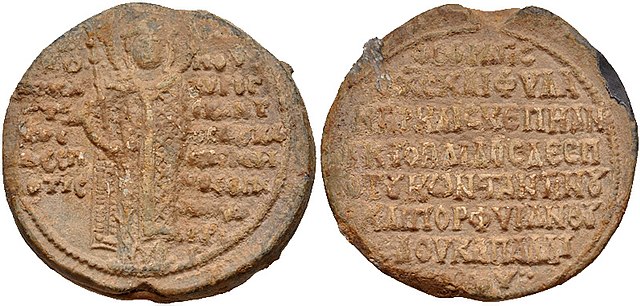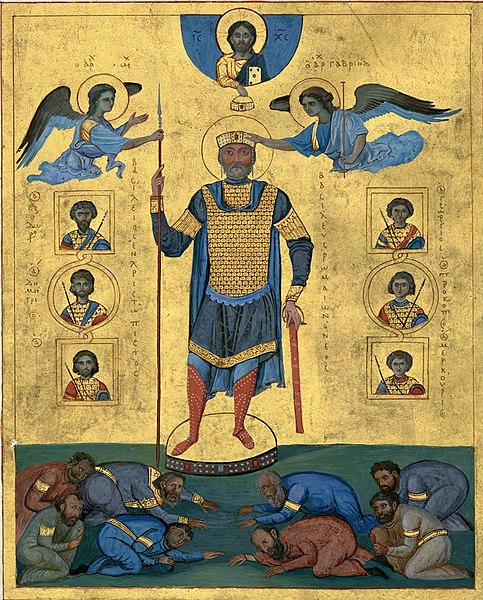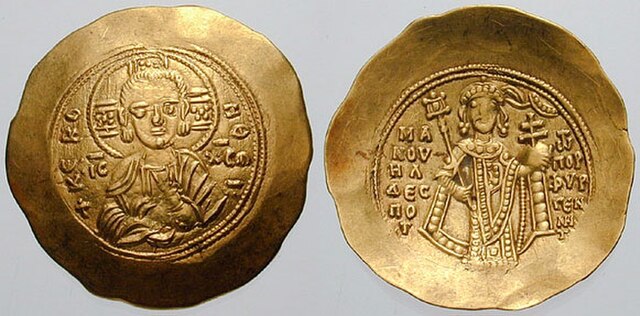Despot or despotes was a senior Byzantine court title that was bestowed on the sons or sons-in-law of reigning emperors, and initially denoted the heir-apparent of the Byzantine emperor.
Empress Eudokia Ingerina with her sons Leo VI (left) and Alexander (right), both called despotes (ΔECΠOTHC)
Emperor Manuel II Palaiologos with his family: empress Helena Dragaš (right), and three of their sons, the co-emperor John VIII and the despots Andronikos and Theodore
Lead seal of Constantine Palaiologos, showing him in imperial regalia, and mentioning his titles of despot and porphyrogennetos
Byzantine bureaucracy and aristocracy
Throughout the fifth century, Hellenistic political systems, philosophies, and theocratic Christian-Eastern concepts had gained power in the eastern Greek-speaking Mediterranean due to the intervention of important religious figures there such as Eusebius of Caesarea and Origen of Alexandria who had been key to developing the constant Christianized worldview of late antiquity.
Painting of Emperor Basil II in triumphal garb, exemplifying the imperial crown and royal power handed down by Christ and the angels.
The back of this coin by Manuel I Comnenus bears his title, porphyrogennetos.
Emperor Manuel II Palaiologos with his family: empress Helena Dragaš (right), and three of their sons, John, Andronikos and Theodore. John, as his father's heir and co-emperor, wears an exact replica of his imperial costume.
Emperor Nikephoros III with an aura flanked by personifications of Truth and Justice, and by his senior court dignitaries, from an illuminated manuscript dating to the 1070s. From left: the proedros and epi tou kanikleiou, the prōtoproedros and prōtovestiarios (a eunuch, since he is beardless), the emperor, the proedros and dekanos, and the proedros and megas primikērios.






